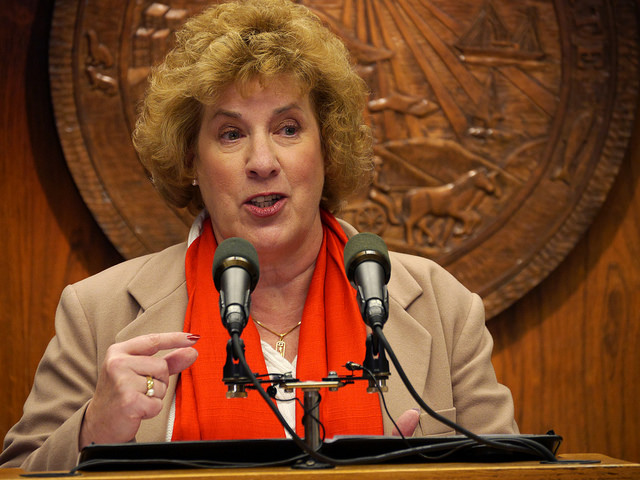
Gov. Bill Walker’s administration is asking the federal government to take on much of the cost of supporting the individual insurance market.
Early interest in the program from the Trump administration is raising the administration’s hopes.
Last month, the state launched the Alaska Reinsurance Program to offset the cost of the most expensive treatments covered in the individual insurance market.
State Insurance Division director Lori Wing-Heier has asked the new presidential administration for a waiver to pay more than 80 percent of the cost, starting next year.
“They were very favorable comments on the waiver,” Wing-Heier said. “They had obviously done their homework in reviewing it.”
Premera had planned to raise individual insurance premiums 42 percent this year, before the Legislature decided to spend $55 million to launch the program.
Those increases were lowered to 7.3 percent for Premera customers. But they were much higher for Moda customers, who had to switch to Premera after their insurer decided to leave Alaska’s individual market.
That may have driven some Moda customers out of the market.
The number of Alaskans who chose insurance plans on the federal marketplace fell from 21,000 in the 2016 enrollment period to 17,000 this year.
Policy consultant D.J. Wilson hosts the State of Reform health care conferences in Anchorage. He said the reinsurance program has proven its value.
“I don’t think there’s any question that the underlying program is important,” Wilson said. “The question is, who’s going to foot the bill?”
Wilson said Alaska has positioned itself well in working with the Trump administration, compared with other states.
“There are a number of states that are doing absolutely nothing right now,” Wilson said. “Alaska actually in many ways is at the forefront of at least trying to wade through – or at least not trying to wait for the federal government to come to some decision before they try to act on their own.”
The waiver application comes at a time of change in Washington.
The Obama administration deemed the application “complete” three days before Donald Trump became president.
Trump and the Republican Congress are committed to repealing the Affordable Care Act. But they’re also looking for state approaches that will lower costs.
That led members of Trump’s team to contact Wing-Heier before the inauguration.
She said a full repeal may not occur.
“I think you’re going to see a tweak of the Affordable Care Act,” Wing-Heier said. “It was a new act. There were some things that probably needed to be amended regardless of who the new president was.”
In the Senate Finance Committee on Thursday, senators noted the high costs of the program – whether for the state or the federal government – in the future.
Wasilla Republican Mike Dunleavy questioned the individual market’s future.
“It would appear that this may not be sustainable over the long run,” Dunleavy said. “I know we’re not the only ones dealing with this, but I’m just wondering at what point will we – the collective we, states, congressional delegation, you name it – get together before we exhaust resources, to try to figure this issue out.”
If the reinsurance program continues next year, consulting firm Oliver Wyman projects individual premiums in Alaska could decline by 4 percent.
Andrew Kitchenman is the state government and politics reporter for Alaska Public Media and KTOO in Juneau. Reach him at akitchenman@alaskapublic.org.




